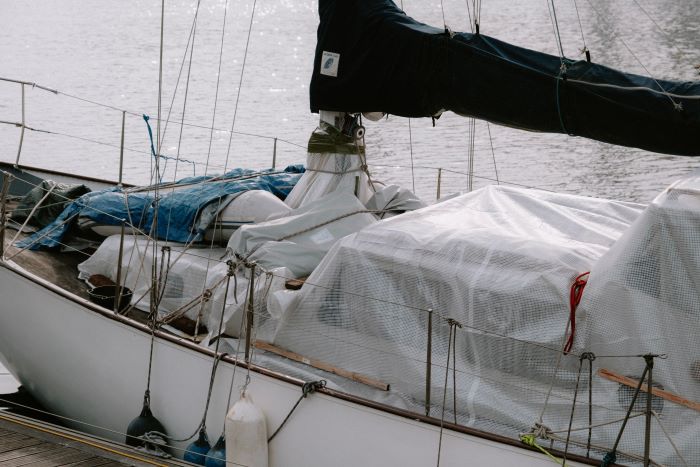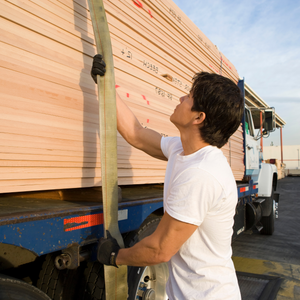
Weather-Resistant Tarps: Protecting Your Assets from the Elements
Tarpaulins, also known as tarps, are a workhorse. They are highly versatile and durable. Therefore, they are the go-to option for various industries whenever your assets need to be protected from the various elements. The material used can withstand outdoor use, but the level of protection they offer varies according to the type of tarp you use.
This guide will provide you with insight into how to select weather-resistant tarps that can withstand the elements.
Which Material Makes the Best Tarpaulin?
Not all tarps are made equal. The primary function of tarps would be to provide covering, but they also should have other characteristics, like strength and durability, to make them suited for various applications.
Some tarp materials like canvas and mesh are made of breathable materials. They are designed for specific purposes, such as covering and protecting. However, they are not made to withstand extreme elements and weather conditions. For example, mesh tarps cover plants from sunlight, allowing rainwater to pass through. The same goes for canvas tarps, which are also made of breathable materials.

Vinyl tarp is a common choice of material for heavy-duty applications. Vinyl is a thicker and abrasion-resistant material that allows it to withstand harsh elements without sustaining damage. The material is also resistant to oil, mildew and grease. Vinyl tarps are weather-resistant, which makes them ideal for truck bed covers and other heavy-duty industries, where maximum protection is required.
Polyethylene tarps are another type of tarp material that can withstand extreme conditions. Polyethylene is a type of plastic that can be made high- or low-density. Depending on the density of the material, the thicker and more damage-resistant the tarp can be. Most poly tarps have additional coating, making them extra durable and strong for long-term, outdoor use.
PVC is another material used for making tarps. They are made of high-strength polyester with reinforced polyvinyl chloride for that smooth surface. PVC tarps are thicker and heavier than other tarp materials. They are recommended to provide covering against the weather and elements. Due to the strength and quality, PVC tarp materials are more expensive.
So, which material is the best for tarpaulins? It depends on your requirements and the purpose. For heavy-duty and long-term use, choose either vinyl, PVC, or poly tarps as they are weather-resistant and known for their quality performance. They are waterproof and weather-resistant so moisture, water, and other elements will be prevented from penetrating through the covering.
Which Tarp Material Lasts the Longest?
The lifespan of tarp materials for covering can vary depending on the conditions they are constantly exposed to. The longer a tarp material is exposed to harsh weather conditions, the more they can sustain damage. Therefore, choosing the suitable material to cover your goods and assets is essential. It will ensure they can withstand the harsh elements, such as the sun’s UV rays, without degrading or deteriorating over time.
However, due to the nature of their construction and the quality of the material, vinyl or poly tarps are designed to be long-lasting. They are reliable and high-quality even when used for industrial and heavy-duty purposes.

Waterproof vs. Weather-Resistant Tarps: Which is Better?
When choosing a tarp to protect your assets from the elements, you generally have two options: waterproof and weather-resistant tarps. Most people confuse these terms as one, but they have distinct differences.
Weather-Resistant Tarp
A weather-resistant tarp is ideal for protecting your assets because it can withstand extreme weather conditions. You can use this material to protect your assets against the rain, snow, sun, and wind. The resilient nature of the material prevents the quality or performance deteriorating even with continued exposure to the various elements.
Weather-resistant tarps are the go-to choice if you need a protective solution for any industry. Here are some benefits you can enjoy when you invest in a weather-resistant tarp:
- It protects your goods and equipment from water damage by preventing rain or moisture from penetrating the material.
- It does not deteriorate in quality even when exposed to harsh weather conditions.
- It is known for its strength and durability, so that you can rely on it for heavy-duty use and long-term applications.
- It is flexible enough, allowing you to roll or fold it without causing damage to the material.
- It offers resistance against chemicals and corrosive substances.
- It has fire-retardant properties, which enables it to protect your goods and equipment from fire damage.
- It is a cost-effective solution for any industry because you can use it for various applications. It can cover and contain any materials that require protection.
- It is a versatile solution for numerous industries, such as agriculture and farming, truck covering, construction sites, sports and recreation, transport and logistics, and more.
Waterproof Tarp
A waterproof tarp is made of materials that prevent water from penetrating through the material. Vinyl is one example of a waterproof tarp. The waterproof quality means that you can completely keep water out, which makes them a great cover against rain or snow.
Waterproof tarps, like vinyl and polyethylene tarps, are durable as well as waterproof. They vary in thickness and size, so you can choose the right thickness and size to suit your needs and intended application. Vinyl tarps are suited for heavy-duty use because they are highly resilient and won't quickly fade or degrade with continued use. But they can also be heavier and more expensive.
On the other hand, polyethylene tarps are lightweight and more affordable. But you can find various thickness levels according to your intended use. They are not as durable as vinyl tarps but are highly effective in keeping water out of your assets as protective covers. However, they are less reliable than vinyl tarps for extreme weather conditions.
Waterproof tarps ideally provide outdoor protection for furniture and equipment, construction and building sites, pool and pond covers, and disaster relief situations.
Choosing between a waterproof and weather-resistant tarp depends on your application for the tarp. You need a weather-resistant tarp if you need more durability and strength for extreme weather conditions. But a waterproof tarp can do the job if you need to keep your goods and equipment dry from light weather conditions like rain.

